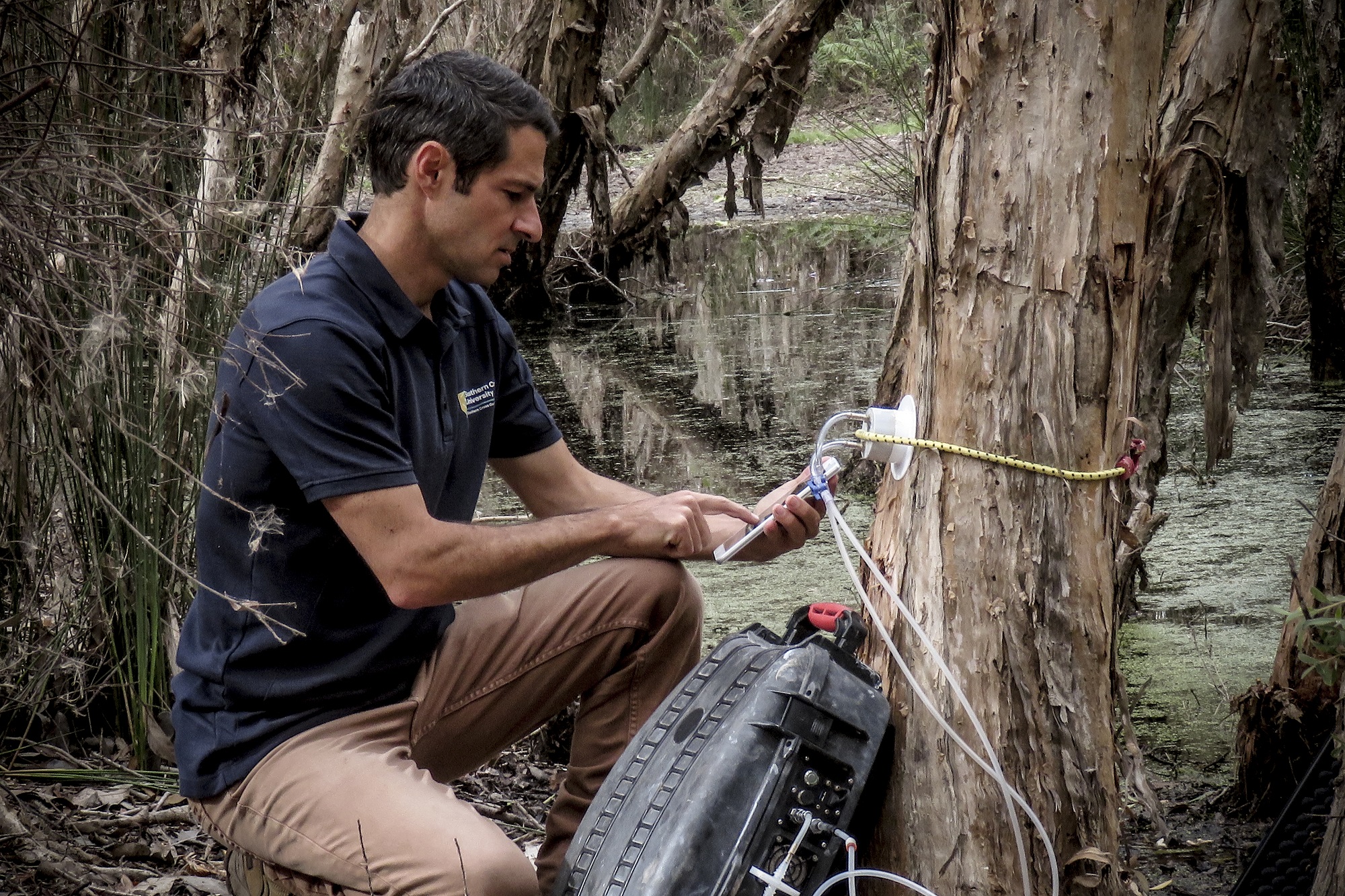Two Southern Cross University researchers, Dr Luke Jeffrey and Dr Judith Rosentreter, have secured Australian Research Council Discovery Early Career Researcher Award grants worth a total of $891,197 to further their studies on methane emissions from vegetation, soils and water, which have already turned up some game-changing findings.
So we now know that bark dwelling microbes have the capacity to regulate the methane emissions from trees and therefore may play an important mitigation role in the global methane cycle and in climate change.
Dr Jeffrey’s previous research, which earned him a Chancellor’s Medal from Southern Cross University and has been recognised in the United Nations Intergovernmental Panel on Climate Change Assessment Report 6, has shown that wetland trees can emit substantial amounts of methane, or ‘treethane’, via their stems or trunks - a process that, until now, has been broadly overlooked.
“While wetland soils store vast amounts of carbon, they also emit methane, a greenhouse gas that is about 45 times more powerful than carbon dioxide when it comes to warming our planet,” said Dr Jeffrey.
In a different but related area of study, Dr Judith Rosentreter’s new research, funded with an ARC DECRA grant worth $434,042, will focus on identifying and quantifying methane oxidation and production processes in mangrove environments, mostly in soils and water.



Cows are any easy fix. You just change their feed and they emit less methane. Might as well do it since it’s “low hanging fruit”.
https://www.theguardian.com/environment/2023/jul/13/seaweed-cow-feed-trial-fails-methane-reduction-australia
One of the world’s longest commercial trials of a seaweed supplement that the global meat industry hopes could slash methane from beef cattle has recorded much lower reductions in the potent greenhouse gas than previous studies.
Putting the supplement into the diets of 40 wagyu cattle in an Australian feedlot for 300 days cut the methane they produced by 28%. The supplement was derived from the red seaweed species Asparagopsis, which has been widely promoted as being able to cut methane by more than 80%, with some experiments suggesting reductions as high as 96%. Globally, the UN’s Food and Agriculture Organization estimates, methane from burping cattle - known as enteric emissions - releases about 2.1bn tonnes of CO2-equivalent a year, compared with the 37.5bn tonnes of CO2 from burning fossil fuels.
Because methane is about 80 times more potent than CO2 at warming the planet over a 20-year period, cutting methane is seen as a way to slow global heating faster.
The trial report noted that other experiments over shorter timeframes using the same open-air measurement technique had recorded higher methane reductions.
The latest trial was financially backed by the country’s biggest beef producer, the Australian Agricultural Company, which helped run the trial and provided the animals.